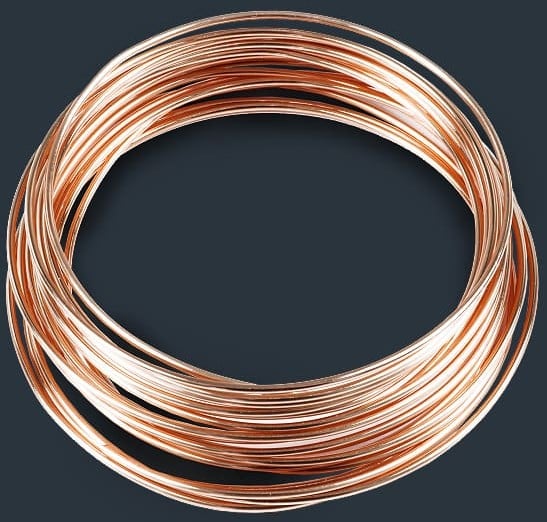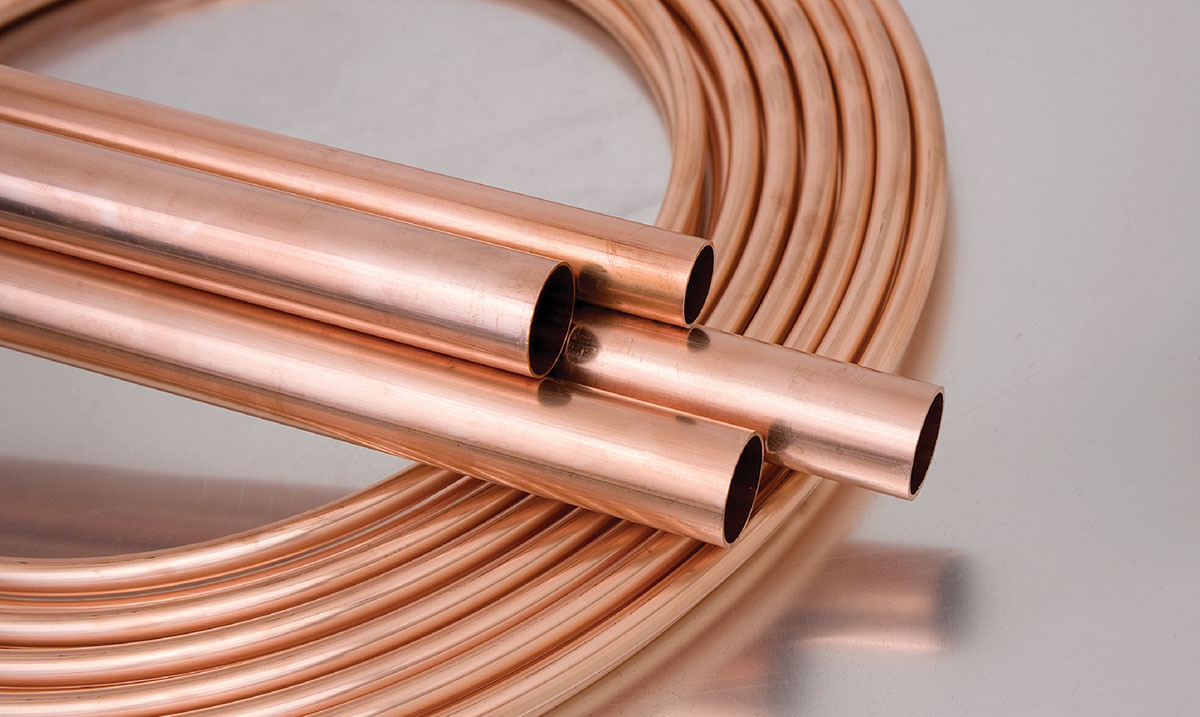Checking out the Adaptability and Durability of Innovative Copper Products in Modern Design
Checking out the Adaptability and Durability of Innovative Copper Products in Modern Design
Blog Article
Checking Out the Diverse Applications of Copper Products in Modern Industries
From boosting the effectiveness of electric systems to playing an essential function in renewable energy innovations, the versatility of copper is apparent. As industries increasingly prioritize technology and sustainability, the varied applications of copper call for a closer exam, especially regarding their possible influence on future environmental techniques and technological developments.
Electric Applications of Copper
Copper is a necessary product in the electrical industry, making up around 60% of the total demand for non-ferrous steels worldwide - Copper Products. Its exceptional electric conductivity, which is almost two times that of aluminum, makes it the recommended option for a large range of electric applications. From wiring systems in household and commercial buildings to high-voltage power transmission lines, copper makes certain performance and integrity in electrical energy distribution
Along with electrical wiring, copper is essential to the manufacturing of electrical components such as generators, transformers, and electric motors. These components take advantage of copper's thermal conductivity and pliability, necessary for warm dissipation and effective performance. Copper's resistance to rust improves the life expectancy and toughness of electrical systems, making it an affordable service in the lengthy term.
The development of renewable power resources, such as solar and wind power, has additionally increased the demand for copper in electric applications. As industries shift towards lasting power solutions, copper's duty comes to be a lot more critical. Generally, the flexibility and efficiency features of copper solidify its status as a foundation product within the electrical sector, driving advancement and effectiveness throughout different applications.
Pipes and Piping Solutions
In modern-day plumbing systems, the choice of products substantially impacts both capability and durability. Copper has arised as a favored alternative as a result of its unique properties, including deterioration resistance and antimicrobial qualities. These characteristics ensure that copper piping stays safe and long lasting for transferring safe and clean water, an essential factor to consider in domestic and business applications.
Among the key advantages of copper in pipes is its capacity to endure high temperatures and stress, making it appropriate for a range of applications, from hot water systems to home heating and cooling networks. Additionally, copper's versatility allows for much easier installment in intricate piping formats, lowering the risk of failures and leaks.
Another noteworthy benefit is copper's lengthy life-span, often exceeding 50 years with correct maintenance. This long life not only lessens replacement costs yet likewise adds to sustainable techniques by minimizing waste. Moreover, copper's recyclability straightens with modern-day environmental criteria, promoting a round economic situation within the pipes market.
Copper in Renewable Power
The flexibility of copper extends beyond plumbing applications, playing an important duty in the eco-friendly power field. In solar panels, copper is utilized in photovoltaic cells and circuitry, facilitating efficient energy conversion and transmission.

Furthermore, as the global demand for electric vehicles (EVs) rises, copper's role in battery systems and charging framework becomes a lot more significant. The material's capacity to conduct electrical energy effectively is indispensable to the efficiency of EV batteries, improving array and billing rate.
Copper's Role in Electronics
Electronics producing counts heavily on copper's extraordinary homes, especially its high electric conductivity and thermal effectiveness. These characteristics make copper a suitable option for a vast array of electronic elements, consisting of ports, circuit boards, and circuitry. The metal's capacity to effectively transmit electric signals makes sure very little power loss, which is important in high-performance electronic devices.
Additionally, copper's thermal conductivity plays a significant role in heat dissipation, securing pop over to these guys sensitive components from overheating. This is especially essential in contemporary electronics, where small layouts lead to raised warmth generation. Copper is also favored for its pliability and ductility, enabling it to be conveniently formed right into intricate designs that fulfill the needs of advanced electronic applications.
With the surge of customer electronic devices, telecoms, and electrical lorries, the need for copper in the electronics sector remains to grow. As technologies in modern technology evolve, copper stays essential to attaining higher efficiency and reliability in electronic items. Its recyclability even more boosts its appeal, as makers look for lasting options without compromising top quality. Hence, copper stays a foundation material in the ever-expanding field of electronic devices.
Cutting-edge Makes Use Of in Manufacturing

One notable application remains in additive production, where copper-based materials are used in 3D printing procedures. This permits the development of complicated geometries and lightweight elements, specifically in the aerospace and auto fields. Additionally, copper's thermal conductivity makes it an optimal selection for heat exchangers, boosting efficiency in commercial cooling systems.
Moreover, the surge of smart manufacturing has seen the incorporation of copper in IoT gadgets, where its conductive abilities sustain innovative noticing technologies. In the world of renewable resource, copper is pivotal in the manufacturing of photovoltaic panels and wind turbines, facilitating more reliable energy conversion and distribution.
As sectors aim for sustainability and advancement, copper's versatility and performance remain to place it as an important material, driving advancements in manufacturing and adding to the development of smarter, a lot more effective items.
Verdict
In summary, copper products demonstrate remarkable adaptability across various contemporary industries. Copper Products. Their premium conductivity improves electrical applications, while deterioration resistance ensures integrity in pipes. The indispensable duty of copper in renewable resource and its vital function in electronics emphasize its value in advancing sustainable practices. Furthermore, cutting-edge uses in manufacturing highlight copper's versatility and sustaining value. Jointly, these applications show copper's critical payment to technological development and commercial efficiency in modern society.
From enhancing the effectiveness of electric systems to playing an important role in eco-friendly energy modern technologies, the versatility of copper is noticeable. As markets increasingly prioritize advancement and sustainability, the varied applications of copper warrant a closer exam, specifically concerning their possible effect on future ecological practices and technological improvements.
The growth of renewable power sources, such as solar and wind power, has actually additionally raised the demand for copper in electrical applications. Overall, the adaptability and performance qualities of copper solidify its standing as a cornerstone product within the electric industry, driving development and performance across numerous applications.
The convenience of copper prolongs past plumbing applications, playing an important role in you could try this out the sustainable energy industry.
Report this page